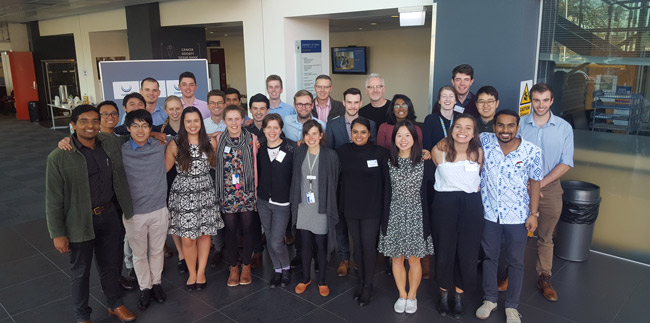Tuesday 5 June 2018 11:12pm

Student representatives at the New Zealand Medical Students' Association (NZMSA)’s annual Medical Education Summit held at Otago's Christchurch campus recently.
Student representatives from the country’s two medical schools recently met to share ideas on how the medical curriculum can become more socially accountable to ensure medical students become competent doctors, advocates and agents of change in society.
The reason for this discussion was the New Zealand Medical Students' Association (NZMSA)’s annual Medical Education Summit. It was held at the University’s Christchurch campus.
"An evolving curriculum ensures our doctors have the relevant knowledge, attitudes, and skills to care for all patients and make a difference in addressing health inequities."
Roshit Bothara, a fourth-year medical student at the Christchurch campus and NZMSA education officer, says the summit was attended by 30 medical education representatives from the Universities of Otago and Auckland. The theme of the weekend event was "Social Accountability of our Medial Curriculum".
“A lot of the discussions were around how the medical curriculum is evolving to meet the health needs of society,” Roshit says. “Our medical schools hold an important role in our society by training the next generation of doctors. An evolving curriculum ensures our doctors have the relevant knowledge, attitudes, and skills to care for all patients and make a difference in addressing health inequities. Collaboration and partnership between our medical students and faculty is an important part of continually improving our curriculum and recognising that students, too, are stakeholders in their learning journey.”
Participants came up with a number of specific initiatives to improve the curriculum for the benefit of both society, and the doctors who will serve it. These included incorporating more Te Reo Māori in the curriculum, for example by using both Māori and English names for body parts when discussing anatomy; incorporating information about self-care and wellbeing in the curriculum to prevent burn out and poor mental health; and suggestions that those who design the curriculum ensure it recognises issues such as gender equality and cultural diversity.
